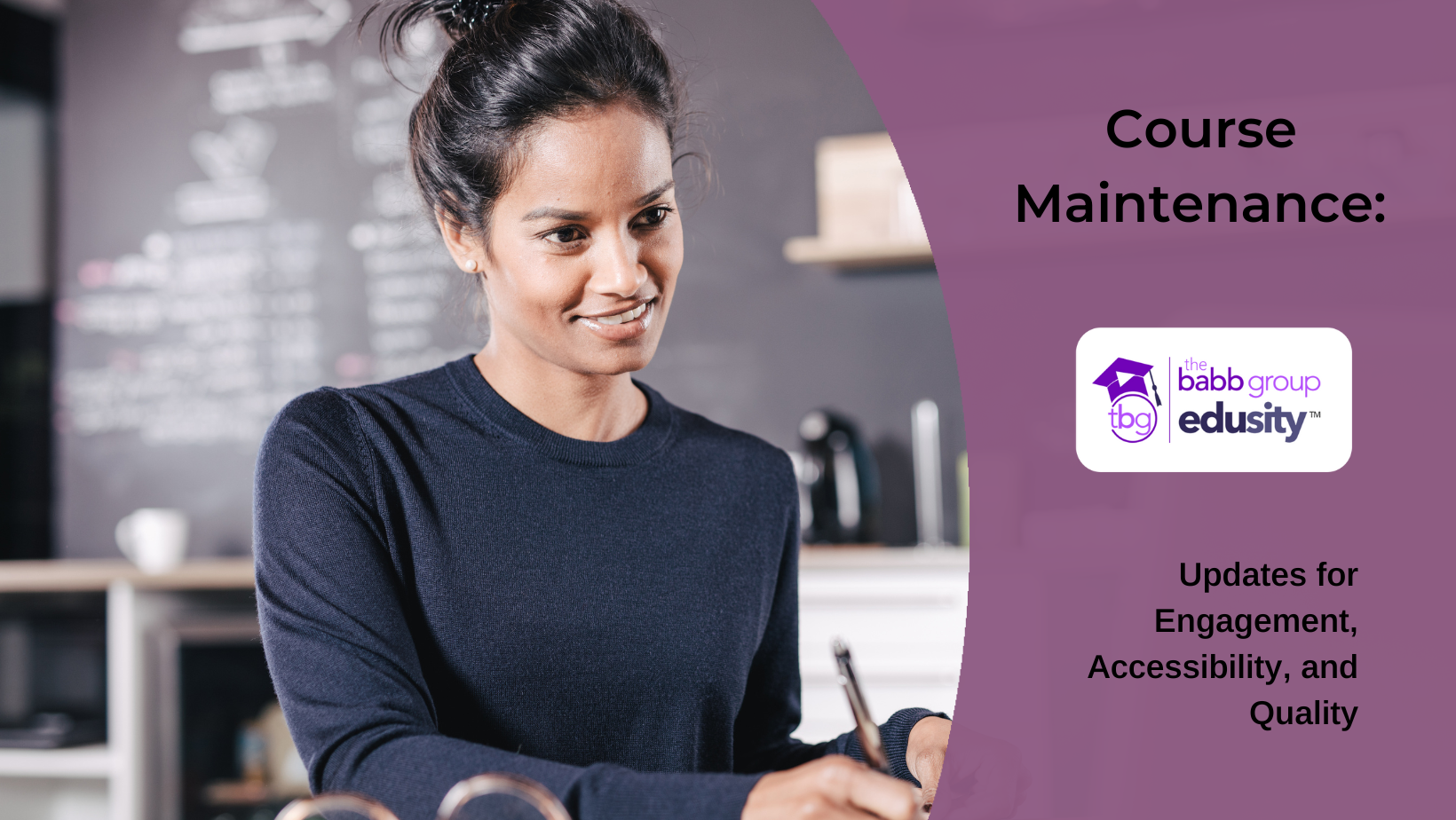We know we can never set it and forget it when it comes to course development. Courses must be reviewed and regularly maintained to keep content accurate, relevant, and engaging. As educational technology continues to evolve, we must constantly evaluate which tech tools to implement. Quality must always be at the forefront.
We consider four key areas of course maintenance: updates in the field, resource updates, learning and teaching methodologies and tools, and accessibility checks.
Updates in the Field
As educators, keeping pace with the latest developments in your respective fields is essential. Course content needs to reflect the information students have at their fingertips, or they will consider it outdated. Regularly reviewing and updating your curriculum can infuse your courses with recent research findings, industry best practices, and emerging trends. This enhances the quality of education and ensures students receive relevant and timely information.
Resource Updates
Textbooks, journals, and online materials are constantly revised and updated. As a faculty member, staying up on these changes and incorporating current resources into your courses is essential. This includes checking links to videos, articles, and the library before the start of every term. Some learning management systems offer link validation tools. Use these to ensure students have the resources they need when they need them. By leveraging the latest resources, you can provide students with the most accurate and up-to-date information. Consider digital resources and open educational materials, which can save students money.
Updates in Learning and Teaching Methodologies and Tools
New teaching methodologies and tools are continually emerging. These tools can enhance the learning experience. Embracing technology in your courses can improve student outcomes and increase their motivation to learn. Consider these alternatives to traditional papers:
- Collaborative project creation and management tools for students
Virtual simulations
- Media-based assignments such as podcasts, videos, and group presentations
- Projects based on real-world work skills
Consider these alternatives to traditional lectures:
- Microlearning: short bursts of information or videos focused on one topic
- Peer instruction
- Game-based learning
- Virtual and in-real-life field trips
Accessibility
You may also like Proactive Planning for Safe and Accessible Online Learning Environments
Ensuring accessibility in online courses is an ethical responsibility and a legal requirement. Regularly reviewing your course materials and ensuring they meet accessibility standards is essential for accommodating students with disabilities. Accessibility considerations include providing alternative text for images, captioning videos, using color contrast effectively, and using accessible document formats.
By conducting regular accessibility checks, you can create a more inclusive learning environment and enable students of all abilities to access and engage with your course content.
Get your courses reviewed by an expert ADA compliance and accessibility team.
Course maintenance and continuous improvement are vital for college faculty in the digital age. Embracing these practices ensures that courses remain relevant, accurate, and accessible, ultimately fostering student success and satisfaction. By focusing on current trends in the field, resource updates, learning and teaching methodologies and tools, and accessibility checks, educators can create a dynamic and engaging learning experience for their students.
Angela Britcher
Latest posts by Angela Britcher (see all)
- Enhancing First-Year Experiences in Higher Education - August 1, 2024
- Enhancing Education with Virtual Reality: A Hands-On Approach - June 27, 2024
- Higher Education Trends: Insights from Our COO, Sheila Fry - June 13, 2024
